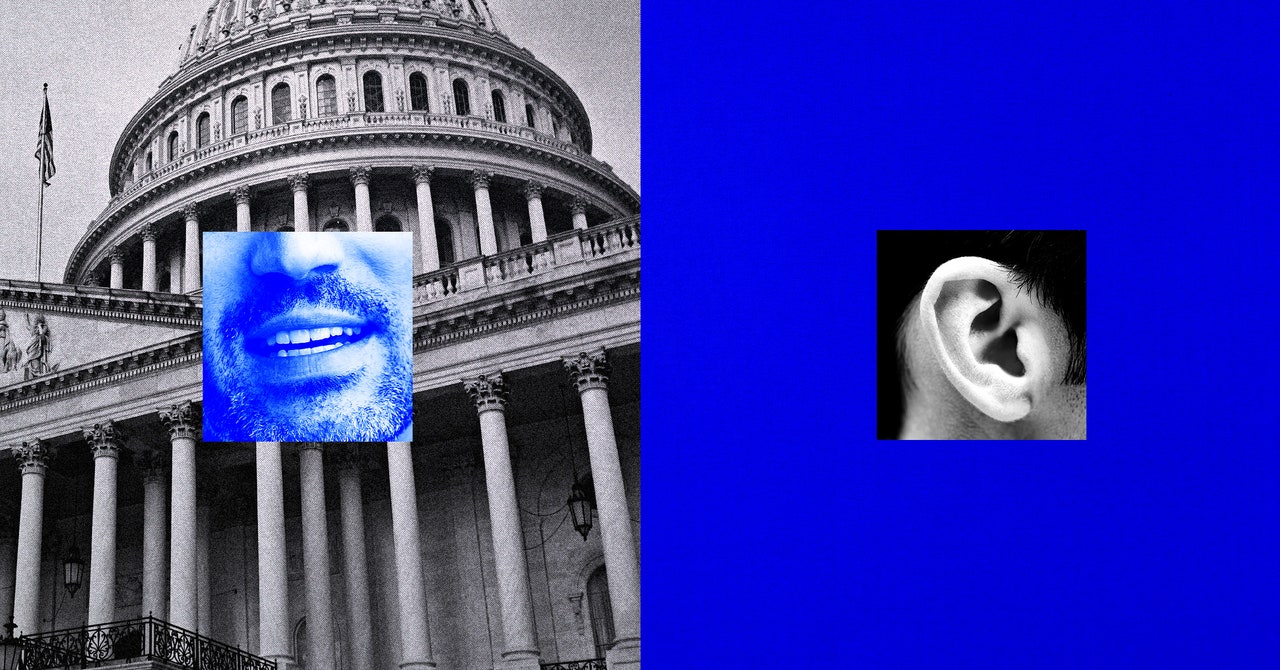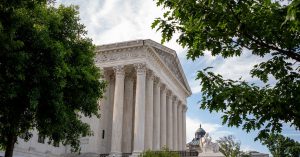
Misinformation researchers are celebrating the US Supreme Court decision
The Supreme Court’s Decision in Murthy v. Missouri ruled that the Biden administration had no evidence of collusion with social media
Alito’s dissenting opinion mostly focuses on how Facebook moderated covid misinformation, with examples including the safety and efficacy of vaccines, as well as the lab leak hypothesis. It also cites a recent report published by the House Judiciary Committee, which is currently chaired by Rep. Jim Jordan (R-OH). Jordan was present at oral arguments in Murthy.
On Wednesday, the Supreme Court issued its decision in Murthy v. Missouri, a case spurred by conservative state attorneys general about whether the Biden administration illegally coerced social media companies to remove speech it didn’t like. In a 6-3 decision, the court reversed the decision by the Fifth Circuit Court of Appeals that found the government to be unconstitutional in its conduct. The SCOTUS opinion states that there was a lack of standing in the case and sent it back to the lower courts where a new decision could be issued.
Alito wrote that valuable speech was suppressed. A footnote that immediately followed cited the lab leak hypothesis, a minority scientific theory that covid originated from a laboratory in China.
Justice Barrett wrote the majority opinion, and was joined by Chief Justice John Roberts and Justices Sonia Sotomayor, Elena Kagan, Brett Kavanaugh, and Ketanji Brown Jackson. Justice Samuel Alito dissented, joined by Justices Clarence Thomas and Neil Gorsuch.
In Murthy, the justices found no evidence of the government using similar tactics to pressure platforms into making moderation decisions.
A report of the House Judiciary Committee concluded that the White House tried to get companies to suppress free speech. In a hearing right before the report was published, Rep. Stacey Plaskett, a Democrat who represents the US Virgin Islands, accused Republicans of making a “last ditch effort to influence the Supreme Court opinion in the case of Murthy v. Missouri.”
Missouri Attorney General Eric Schmitt made a statement in May 2022. he said that members of the Biden administration colluded with social media companies like Meta,Twitter and YouTube to remove information related to the lab-leak theory, election integrity and more. A federal judge banned the government from talking to social media platforms last year.
“Communication between the government, social media platforms, and government entities is critical in providing information that social media companies can use to ensure social media users have authoritative information about where you’re supposed to go to vote, or what to do in an emergency, or all of those things,” she says. “It is very useful for the government to have partnerships with social media to get that accurate information out there.”
The NRA v. Vullo of the American Rifle Association: Two Rapid Response Projects in Washington and California, and How the House of Representative Judiciary Committee Followed Jordan
The court decision on National Rifle Association v. Vullo was likely the first sign of how it would approach the Murthy decision, says David Greene, Civil Liberties director at Electronic Frontier Foundation. The Vullo case involved the suppression of the organization’s advocacy as well as alleged pressure from the New York Department of Financial Services on banks and insurance companies to avoid doing business with the organization. The court decided that the case against Vullo could go forward, despite the fact that there was no evidence to support it. In the opinion, Justice Sonia Sotomayor wrote that the NRA’s complaint “plausibly alleges that Vullo threatened to wield her power against those refusing to aid her campaign to punish the NRA’s gun-promotion advocacy.”
“Other than that the facts involved are sort of politically motivated, the legal issue itself is not something that I think traditionally breaks down along partisan lines,” says Greene.
But Greene says that without clear guidelines, state, local, and federal government bodies—of all political leanings—could feel freer to contact platforms now. “We will see a lot more of that type of government involvement in these processes,” he says.
The two most well-known rapid-response projects conducted by US researchers in the last four years were led by the University of Washington in Seattle and the Internet Observatory in California. For both projects, the researchers flagged virally spreading falsehoods as quickly as they could to social-media companies and US agencies, and their reports were released publicly. At the same time, the federal government was also pointing out this type of problematic content to Facebook and other platforms.
Renée DiResta, a staff member who was not renewed this year, says that the politicians who undermined the election will get a boost from the fact that the programme was shut down. She said that the right wing was doing victory laps. “Every university should be horrified by this.”
The US House of Representative Judiciary Committee posted a big win on June 14. It then celebrated the “robust oversight” of committee leader Jim Jordan, a Republican representative from Ohio who voted to overturn the 2020 election results. Jordan has begun congressional investigations of academics linked to the election and health misinformation projects.
All of this has discouraged efforts by government agencies and academics to identify and counteract false narratives, says Gowri Ramachandran, a deputy director at the Brennan Center for Justice, a think tank in New York City that advocates for voting rights. She says that this is of particular concern as the United States prepares for its next presidential election, in which Biden and Trump will face off once again.
The lawsuits by conservative activists have sparked fear among misinformation researchers, and changes to the online environment have made it harder for them to carry out their work. For instance, after billionaire entrepreneur Elon Musk bought Twitter (now called X), he instituted policies that cut off academics’ access to data on the platform. Many other social-media companies have abandoned efforts to moderate content for accuracy.
Legal scholars and researchers contacted by Nature said that today’s ruling is a win for academic freedom and that the ruling will impact lawsuits against scientists.
The Virality Project: A Supreme Court Decision to Sustain Politically Motivated Misinformation in the U.S. Post-Newtonian 2021 Election
The researchers then adapted this model to create the Virality Project, which ran from February to August 2021. More than 900 problematic social-media posts were reported to US health authorities and social-media companies, most of which focused on misinformation about vaccines.
“Elated. Kate Starbird was a misinformation researcher at the University of Washington in Seattle, who was involved in both academic efforts to combat misinformation.
Conservative activists and politicians thought that the effort to get conservative people to vote in the US presidential election was politically motivated and targeted at Republicans. The Supreme Court decided that the US government should be subject to multiple lawsuits after conducting congressional investigations. This case was originally filed in May 2022 in a federal district court in Louisiana by plaintiffs including the then-attorneys-general of Missouri and Louisiana, both of whom had also challenged whether US President Joe Biden actually won the 2020 election.
“This ruling is a major victory for independent research,” says Rebekah Tromble, who leads the Institute for Data, Democracy and Politics at George Washington University in Washington DC. The Supreme Court concluded that facts do still matter when it rejected conspiracy theories at the heart of the case.
